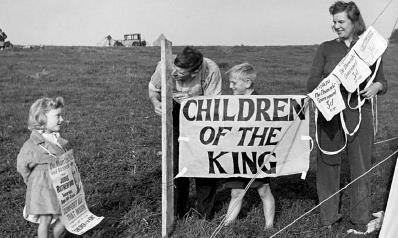The Hughes Court (1930–41)First Amendment |
In what decision did the Hughes Court unanimously strike down a city licensing law applied to Jehovah’s Witnesses? |
The Hughes Court unanimously ruled 8–0 (Justice Benjamin N. Cardozo did not participate) in Lovell v. City of Griffin (1938) that a Georgia city law prohibiting individuals from distributing materials without a license from the city manager violated the First Amendment. Griffin, Georgia, officials fined Alma Lovell, a Jehovah’s Witness, $50 for distributing without a permit a religious magazine called the Golden Age. Griffin refused to apply for a permit, saying such an attempt would have been “an act of disobedience to His commandment.”
Chief Justice Charles Evans Hughes reasoned that such a law amounted to unconstitutional censorship. He compared it to the licensing laws in England in the sixteenth and seventeenth centuries, where printers had to obtain a license before printing materials. Hughes wrote: “The liberty of the press is not confined to newspapers and periodicals. It necessarily embraces pamphlets and leaflets. These indeed have been historic weapons in the defense of liberty, as the pamphlets of Thomas Paine and others in our own history abundantly attest. The press in its historic connotation comprehends every sort of publication which affords a vehicle of information and opinion.”

